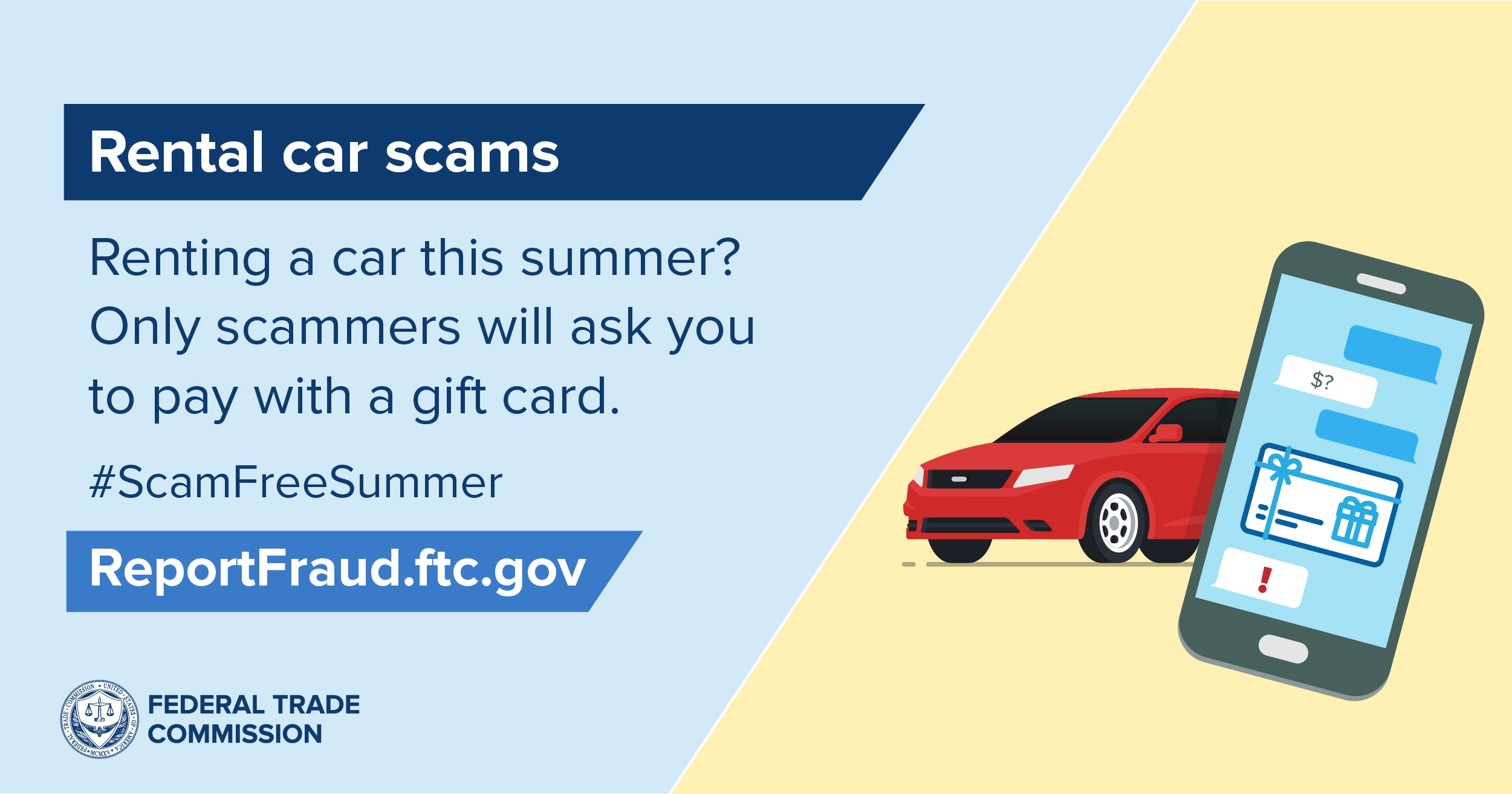
The weather is getting warmer, and you might be itching to travel again. The mountains, the beach, and the trails are calling you — and everyone else. At least that’s what it feels like when you start looking into renting a car. With rental car availability at an all-time low, prices are sky high. So, if you suddenly find an available car at a cheap price, you might be dealing with scammers looking to cash in on the rental car shortage.
Scammers are posing as rental car companies, setting up their own websites, and advertising fake customer service phone numbers, all to convince travelers they’re legit. Then, they’re asking people to pre-pay for the rental — with a gift card or prepaid debit card. To avoid rental car scammers driving off with your money:
- Research the rental car company by searching for the name of the company and words like “scam,” “complaint,” or “review” to check if other people have had a bad experience.
- Verify deals with the company directly. If you need customer support, look for contact info on the company’s official website. Don’t use a search engine result. Scammers can pay to place sponsored ads in search results, so they show up at the top or in the sponsored ad section.
- Pay with a credit card if possible, and never pay with a gift card or prepaid debit card. You can dispute credit card charges, but gift cards and prepaid debit cards can disappear like cash. Once you give the number and PIN to a scammer, the money is gone.
Before you rush to book that miraculously available rental car, take a beat and read up about things you should consider when renting a car. If you spot a rental car scam, tell the FTC at ReportFraud.ftc.gov.
